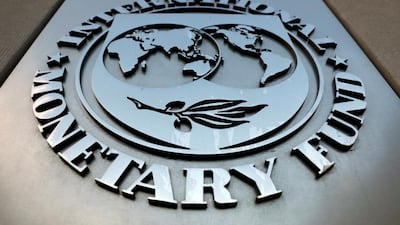The executive board of the International Monetary Fund has approved the Washington-based lender’s administrative and capital budgets for the 2022 financial year.
The administrative budget for the financial year that began on May 1 was set at $1.21 billion while the capital budget for the year is $79 million, the fund said on Thursday.
The budget “is set in the context of a global economic outlook that is marked by high uncertainty and the likelihood of uneven recovery, with many countries facing daunting crisis legacies”, the fund said.
The Covid-19 pandemic and resultant lockdown measures tipped the world economy into its worst recession since the 1930s.
The economic slowdown was especially harsh on the poor and may have pushed about 100 million people into extreme poverty last year, according to the UN.
Poverty in some regions could rise to 30-year highs, the UN warned.
The fund said many countries may not return to growth levels recorded before Covid-19 for several years, with those that lack the means to mitigate the impact hit the hardest.
“With the pandemic still present in most countries and mutations of the virus emerging, uncertainty remains exceptionally high. Faced with a likely uneven recovery, the IMF will continue to focus on supporting members’ efforts to confront the impact of the Covid-19 crisis,” it said.
The capital budget provides capital for infrastructure and information technology projects, including the modernisation of digital platforms and tools, according to the lender.
“Financial support is expected to rise and programmes to become more complicated as many emergency financing operations are followed with upper credit tranche, or UCT, conditionality programmes, in many cases characterised by complex debt issues,” it said.
As of March, 12 UCT arrangements had been approved, with another 38 members expressing interest in new UCT programmes. Fifteen countries are also seeking emergency financing and their requests will come up for approval in the current financial year.
The IMF's executive board also took note of indicative budgets for the 2023 and 2024 financial years.
The administrative budget for 2023 is expected to be $1.24bn while that for 2024 has been set at $1.26bn.
The capital budgets for 2023 and 2024 will be $92.4m and $87.9m respectively, the IMF said.


